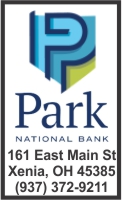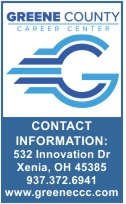Wilberforce University News
WILBERFORCE UNIVERSITY SELECTED FOR $1 MILLION GRANT FROM UNCF TO IMPROVE JOB OUTCOMES OF GRADUATES
UNCF® Career Pathways Initiative, funded by Lilly Endowment Inc., awards $35 million in grants to selected HBCUs and PBIs; to address social and economic issues of minority graduation, unemployment, and underemployment
After a six-month planning phase, UNCF announced Wilberforce University as one of 24 colleges and universities that will receive five-year grants totaling $35.3 million for the UNCF® Career Pathways Initiative (CPI), a transformative effort to design and implement programs to improve employment outcomes for graduates.
Per a statement from Wilberforce University President, Herman J. Felton, Jr.,
The Wilberforce University family is excited about this incredible opportunity to radically transform the collegiate experience of our students as we prepare them for their place in the world beyond Wilberforce. We will leverage the rich legacy of achievement that has defined the Wilberforce University student experience since 1856 and look confidently to a future where excellence, innovation and kindness are our value drivers. The Career Pathways Initiative Grant will allow us to boldly reimagine the academic and student engagement enterprise at Wilberforce to assure that our graduates are fully prepared to assume significant roles in the workplace and as entrepreneurs.
We look forward to working with UNCF and joining this network of grantee institutions to build a community of practice and knowledge base that will inform our work and serve our students to the fullest of our intention and ability.
Made possible through a grant from Lilly Endowment Inc., the UNCF® Career Pathways Initiative (CPI) is a unique pilot program for select historically black colleges and universities (HBCUs) and predominantly black institutions (PBIs) that is helping them enhance career readiness for their 54,000 enrolled students. Many of these students will be the first in their families to earn college degrees. The majority of students are from low-to-moderate income families and must receive federal financial aid to pursue their undergraduate studies.
Wilberforce University submitted a proposal that reflects a commitment to strengthening career advising and mentoring, enhancing curricula, and supporting integrated co-curricular engagement. As part of CPI, the selected institutions will develop a range of academic programs, student internships, industry partnerships, specialty certifications, and faculty development as they forge a new model for career readiness.
“These colleges and universities show promise in significantly addressing the urgent challenges facing African American college students and graduates,” said Dr. Michael L. Lomax, UNCF president and CEO. “We heartily congratulate Wilberforce University and the 23 other institutions chosen to lead this important work."
UNCF launched CPI in December 2015 through a rigorous and competitive multi-phased grant process that targeted 87 eligible public and private HBCUs and PBIs. In the first phase, UNCF made planning grants to 30 institutions. In the final phase, UNCF has chosen 24 colleges and universities for implementation grants. Of those schools, 15 institutions will receive individual awards ranging from $1 million to $1.5 million. Nine of the institutions have been selected for three cluster grants, in which each cluster of three institutions will collaborate intentionally to achieve their shared outcomes. Each cluster will receive up to $6 million.
The Career Pathways Initiative Grant allows us to look both introspectively and collaboratively at our fifty-year old Cooperative Education Program and the areas whose support directly and indirectly impact its success. The CPI Grant will resolve the dissonance between students at the onset of admission and the collegiate experience, while propelling the Cooperative Education Program into the 21st Century. This endeavor will be integrated across all academic and co-curricular activities, under-girding the existing mandatory Cooperative Education requirements, assessments, and leadership development programs. Managed through a comprehensive workforce development plan, students will benchmark through a distinct pathway, engaging in and out of the classroom to better prepare for meaningful yearly internships and workforce engagement – from the first-year experience to beyond graduation.
















